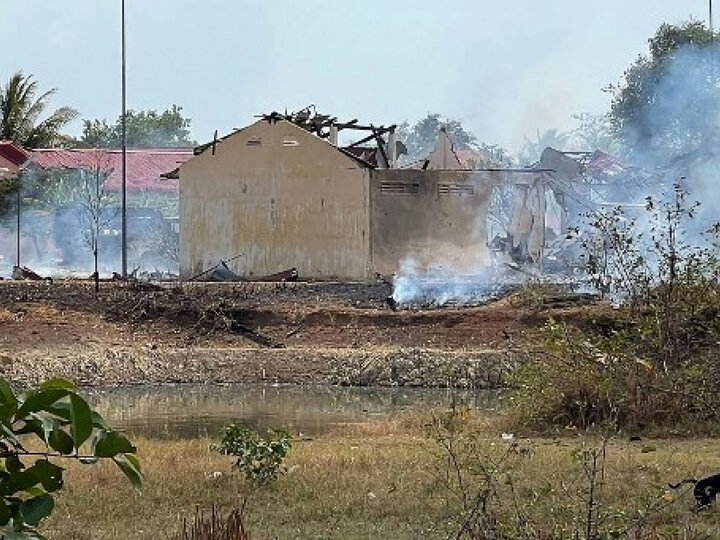Guards sought to keep media away from the site in Kompong Speu province, ABC News reported.
Hun Manet, the prime minister of Cambodia said in a Facebook post on Saturday that he was “deeply shocked” when he received the news of the blast in the province's Chbar Mon district. It was not immediately clear what caused it.
Images from the scene showed several badly damaged buildings on the base, at least one with its roof blown off, and soldiers receiving treatment in a hospital. Other photos showed nearby houses with holes in their roofs.
Four buildings — three for storage and one work facility — were destroyed and several military vehicles damaged, Col. Youeng Sokhon, an army officer at the site, said in a brief report to army chief Gen. Mao Sophan, posted on social media. He added that 25 villagers’ homes were damaged as well. Photos of the base showed the damaged structures in a large field, apparently with no civilian structures close by.
Another villager, who asked to be named only as Sophal, told AP he had heard a sharp sound, and when he saw smoke rising from the direction of the army base, he realized it was an explosion at the arms depot. He then ran back to his house from the small shop where he sells food and drink to shelter inside with his wife and two children.
He said the military immediately closed the road to the base and “villagers were in a panic, seeking a safe place.” He then moved his family to his parent’s home, farther away from the base. When he returned to his own house hours later, he found it undamaged but other villagers’ houses had broken windows, doors, and roofs, he said.
Cambodia, like many countries in the region, has been suffering from an extended heat wave, and the province where the blast took place registered a high of 39 C (102 F) on Saturday. While high temperatures normally can’t detonate ammunition, they can degrade the stability of explosives over a period of time, with the risk that a single small explosion can set off a fire and a chain reaction.
SD/PR
